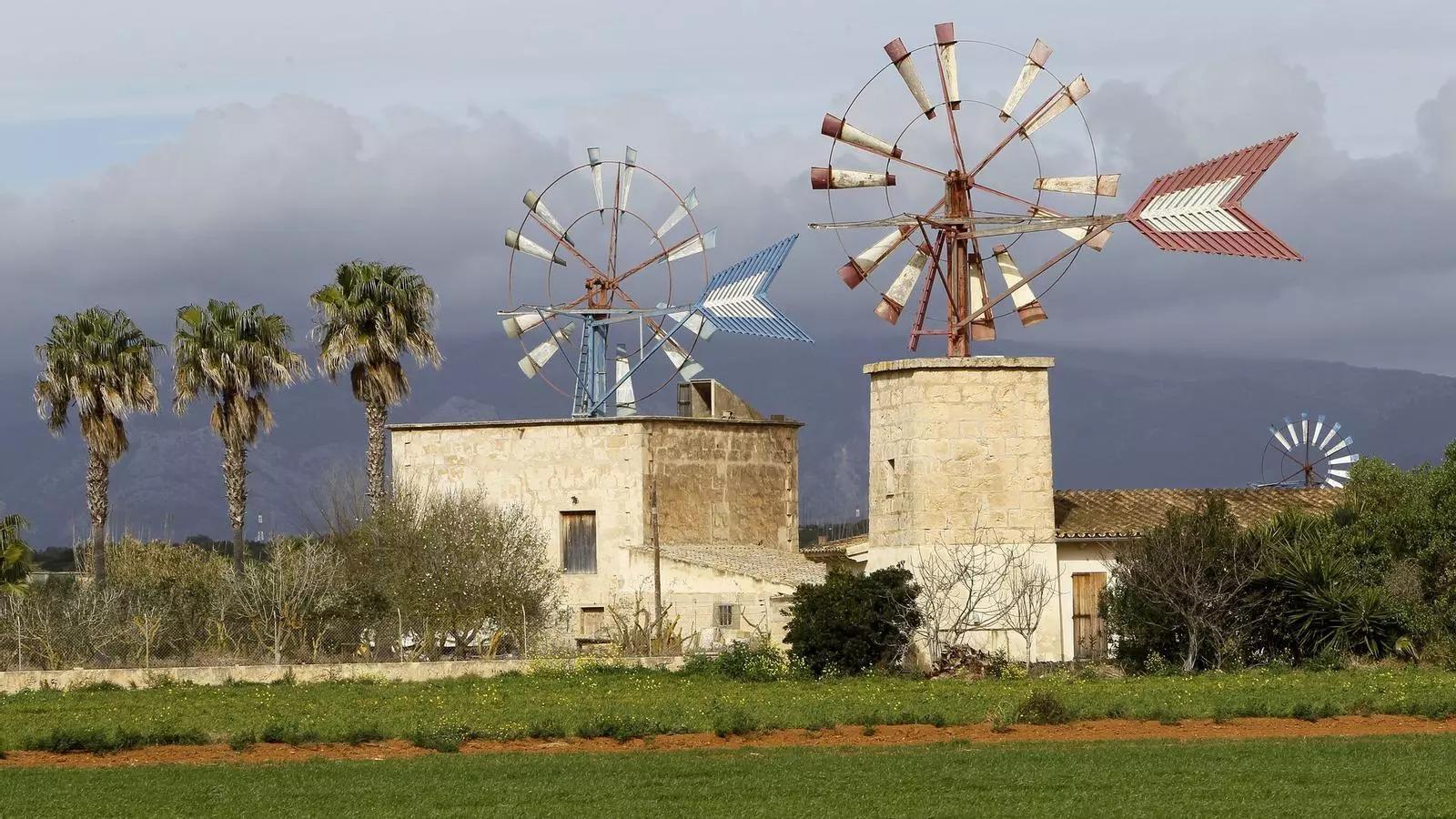And what do you say 'molino' or 'mulino'?
Do you pronounce words like 'primo', 'molino', or 'trozo' with an 'o' or a 'u'? If you pronounce them with a 'u' and you're not from Sóller, Ibiza, or Menorca, do what's known as a conditioned closure. The Catalan of Mallorca is rich and diverse in varieties, and this is one of its distinguishing features, one of those that defines the physiognomy of the speech of each locality.


PalmYou've probably encountered a friend from another town who doesn't say things the way you do. It's not that they use strange words or pronounce things very differently from yours, but something about them sounds different. One of the possible reasons why your neighbor speaks differently could be the air conditioning. This phenomenon consists of pronouncing words like 'profit', 'rabbit', 'fucked' as 'prufito', 'knife' and 'harvested'. That is, to make the 'o' followed by 'i' be pronounced as a 'u'. Thus, speakers who do this pronounce 'mulino', 'cusí', 'bucí', 'prufito' and even, 'communion', 'cumu' and 'turtle', unlike those who pronounce everything with an 'o'.
And it is not that in Sóller, Menorca, and Ibiza do not go too far in braking, but they do not apply this rule. The people of Sollerics, Menorcans, and Ibizans play a different game and "speak with the u," that is, they systematically turn the unstressed 'o' into a 'u', as is also done in much of the Principality. Thus, a Solleric pronounces both 'mulino' as 'achieve'with a 'u', while someone who does the conditioned closure will pronounce the first one as 'mulino'and the second as 'buy': with 'buy' the closing condition is not met.
Where do they do it? Generally, 'mulino', 'cusí' and 'cumu'We can hear them throughout Mallorca, but we can locate them in specific towns. This is what the residents of Andratx, Calvià, Sant Jordi, Estellencs, Banyalbufar, Esporles, Deià, Puigpunyent, Valldemossa, Bunyola, Alaró, Selva, Caimari, Biniamar, Santa Maria, Consell, Sencelles, Costitx, Llubí, Maria, Santa Margalida, Ariany, Petra Porreres, Llucmajor, Campos, ses speak like this Salines, Santanyí, Felanitx, Artà, Capdepera and Son Servera; while those of Palma, Manacor, San Lorenzo, Sineu, Inca, Mancor, Búger, Campanet, Moscari, Sa Pobla, Pollença, Alcúdia and Muro pronounce them with 'o'. Unlike other cases, we can't completely divide the map of Mallorca in two; we can only point out specific towns that have this characteristic. Note how towns as close as Manacor and Petra, Mancor and Selva, and Sineu and Llubí speak very differently.
The bass always get angry with themThey say that a lubiner got really angry because someone from Campanet was saying the name of his town.Llobí'. This is common among speakers who do not change the 'o' to 'u' and consists of the exact opposite: applying it in reverse and doing everything with 'o'. Thus, it is common for these speakers to pronounce an 'o' before 'y' or 'u', regardless of whether the word has a 'u' or a 'u'. For this reason, it is possible to hear someone from Manacor, Campanet or Inca, for example, say "municipal", "estudiar", "justicia" and "Llobí", although the lubines get angry. In these towns the absence of 'u' before these sounds is regularized and it is applied as a general rule in general to all words, regardless of whether they contain a 'u' or an 'o'. And with this not only the lubines get angry, but also the costcheros: one comesspoon-makers". In fact, among those languages that pronounce it with an 'o' we can find another change: pronouncing a neutral vowel instead of the 'o' or 'u' of other peoples. It is common, therefore, to hear them say"rebiol" by 'rubiol' and "fennel" for 'fennel', among other examples.
It comes from behindThese phenomena come from behind and Antoni Maria Alcover, father of Catalan-Valencià-Balear Dictionary and compiler of the stories, had already documented them among the elders of Mallorca and with an identical distribution to the current one. This phenomenon is a characteristic of the Mallorcan way of speaking that helps define and delimit the small variations that occur between populations. However, in some towns like mine (Selva), the pressure from neighboring towns and the fact of having to go to high school outside of town have caused young people to slightly change their way of speaking, and it is common to hear them say "dormir" instead of "sleep."sleep', "copy" and not 'cupiar', etc. And even more, to say "communion", "cumuna" and "turtle" is in sharp decline. After all, it is a well-known consequence in linguistics, called dialect leveling, a behavior that consists of blurring the differences between speeches. Without being catastrophic, however, conditioned closure is very much alive in the peoples that are native to it.
A small difference. It seems subtle, but the conditioned closure is a small difference that is noticeable. This feature, added to the set of pronunciation features that the different dialects of Mallorca have, define the way of speaking of each town and each Mallorcan. When we think of someone from Felanitx, we immediately think that they don't make the open 'e', that they make the who (a popular way of calling this consonant) and they say "Agustí" and not 'August'. On the other hand, one from Manacor, making the 'e' open, the who and saying "Gosti" is quite knowledgeable next to a Felanitxer. In the same way, peoples who present fewer differences between them, can disagree on this conditioned closure: the Selvatgins, Mancorins, Caimariencos, Campaneros and Lubines are differentiated from each other by this trait and few others. A vowel that marks us and that, certainly.
